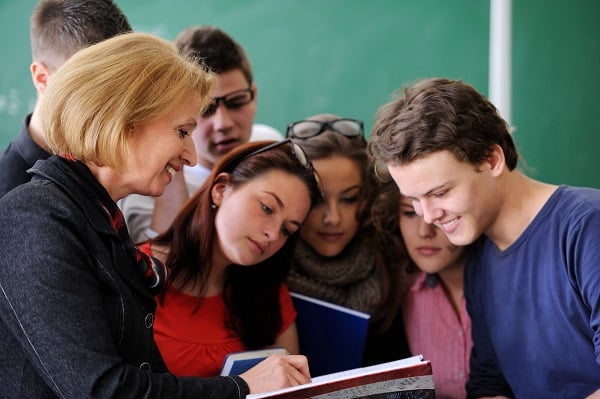Published on
Changing With the Times: Faculty’s Role in Delivering a Great Student Experience

No matter what institution you’re talking about, faculty play a massive role in the delivery of a world-class student experience. However, with so many priorities competing for their time—and so many priorities playing into their career progression—faculty members often don’t have the opportunity to explore new ways to serve students, or even to participate in discussions around how the faculty role is evolving. In this interview, Gerardo Gonzalez shares his thoughts on the changing roles of faculty and their impact on the success of students and the institution.
The EvoLLLution (Evo): To your mind, what are some of the most significant misconceptions institutional leaders tend to have around the role and activities of faculty?
Gerardo Gonzalez (GG): I’m a faculty member at a state university, but I have observed administrative-faculty relations across public and private higher education institutions. The most consistent misconceptions are that all faculty are not accountable and not productive enough. These misconceptions overlap with general public misperceptions. The truth of the matter is that most faculty work hard and are very productive in their scholarship, teaching, and service responsibilities.
I served as a senior administrator for many years. Administrators face many changing priorities that come from different institutional, legislative and budgetary pressures. From my experience, implementing administrative priorities requires inspiring, convincing, or rewarding busy faculty who do not necessarily see these issues as urgent or essential.
Evo: How important is the student experience to student success?
GG: The student experience is very important to student success.
In order for students to succeed, faculty, staff and administrators should understand current issues that influence student motivations, interests and goals. University leaders need to be aware of changing student expectations, particularly from students’ prior classroom and school experiences. For example, when I returned to the faculty I discovered that many students now expect immediate feedback on assignments and a constant status report their course grades throughout the semester. In other words, “racking up” points and knowing where they stand on their progress are rewarding pursuits for many young students. I made modest adjustments to my grading approach to provide more timely feedback and maintain a digital grade book that students can access in our course management system. However, rather than make wholesale changes, faculty should make adjustments to their pedagogical approach to the extent that they are maintaining teaching and assessment rigor.
While students are at university, their campus experiences matter to their future success. Studies have shown that students who feel more integrated with their campus, as a member of the campus community, have a higher probability of succeeding academically and socially. In my mind, student success reflects faculty, administrator and staff success.
Evo: What impact do institutional faculty have on the experience of students both inside and outside the classroom?
GG: The impact of faculty on student experiences is substantial. Studies have shown that faculty-student interactions can have significant influence on students’ perceptions of their university experience. Faculty should recognize that their attitudes and actions contribute to institutional culture and campus climate. Supportive faculty interactions can assure students and families that the institution welcomes them. Furthermore, positive student experiences can result in alumni loyalty to the faculty, department, and university. The positive experiences have implications for philanthropic and moral support, especially in periods of difficult budgetary pressures.
Evo: How has the impact of faculty on the student experience changed, if at all, over the past decade?
GG: In my view, there is more faculty-student engagement in and outside the classroom. Many faculty are aware that High-Impact-Practices (HIP)—like service learning/internships, undergraduate research, learning communities, etc.—are important toward attaining student success.
Many faculty now strive toward engaging students in HIP-related activities, particularly those that can be integrated with their existing instructional, scholarship, or professional activities.
Evo: How do you see the role of faculty continuing to evolve over the next decade?
GG: Faculty face a changing role in response to academic priorities, top-down pressures, and student needs, among other factors. Most likely, faculty will be expected to more fully integrate technology in support of instruction. Thus, faculty will need to find novel ways to reproduce the benefits of face-to-face instruction and on-campus experiences for students who are growing increasingly reliant on interactions through digital technology. Many faculty recognize these student inclinations and are implementing innovative pedagogical strategies to integrate technology and student community.
Overall, faculty ought to be aware of forces that are shaping their future roles and must maintain a voice on how their roles may change. In order to accomplish this aim, faculty should remain engaged in determining their role and ensure that any transitions align with professional standards for high-quality scholarship, teaching, and service.



